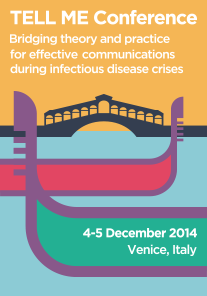Individuals or organisations are capable of forming negative opinions on a wide range of topics including issues related to infectious disease. Such opinions are not based on sound scientific evidence or up-to-date accurate information but are based upon ill informed prejudices based on unsubstantiated perceptions. Such perceptions may result from cultural viewpoints, religious opinions or simply be based upon a person's instinctual assessment of a situation in the face of the non-availability of accurate information. Prejudices can exist concerning individuals, their culture, their ethnicity or a wide range of social activities. Prejudice can be differentiated from informed opinions because they cannot be justified reasonably or objectively. Informed opinion on the other hand can be supported by evidence. The existence of unchecked prejudicial attitudes can be dangerous in the context of an outbreak of infectious diseases as they can give rise to stigmatising activity.


